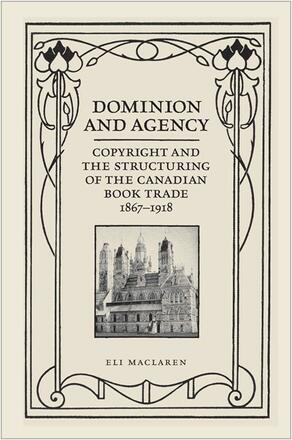
Dominion and Agency
Copyright and the Structuring of the Canadian Book Trade, 1867-1918
Description
The 1867 Canadian confederation brought with it expectations of a national literature, which a rising class of local printers hoped to supply. Reforming copyright law in the imperial context proved impossible, and Canada became a prime market for foreign publishers instead. The subsequent development of the agency system of exclusive publisher-importers became a defining feature of Canadian trade publishing for most of the twentieth century.
In Dominion and Agency, Eli MacLaren analyses the struggle for copyright reform and the creation of a national literature using previously ignored archival sources such as the Board of Trade Papers at the National Archives of the United Kingdom. A groundbreaking study, Dominion and Agency is an important exploration of the legal and economic structures that were instrumental in the formation of today's Canadian literary culture.
Reviews
‘Eli MacLaren deftly guides the reader through the complex history of copyright in Canada… This meticulous study would be of interest to scholars studying book history and Canadian literature and history.’
- Alison Rukavina
‘Eli MacLaren’s book deftly guides the reader through the complex history of copyright in Canada… This meticulous study would be of interest to scholars studying book history and Canadian literature and history.’
- Alison Rukavina
‘Dominion and Agency should be essential reading for book historians and legal historians alike. It should also serve as a cautionary tale for contemporary Canadian policymakers as the vestiges of this history remain part of our copyright story to this day.’
- Myra J. Tawfik